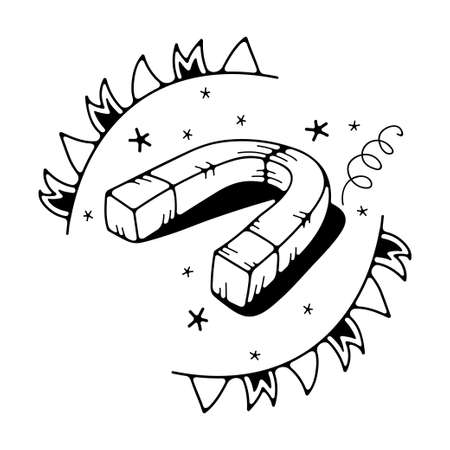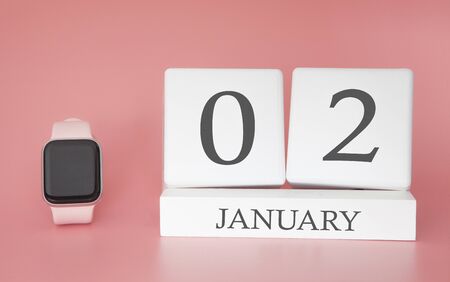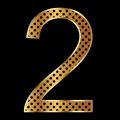Understanding Astrology’s Role in Modern Self-Development
Astrology has become a popular tool for self-discovery and mental health awareness across the United States. While some may view it as just a fun pastime, many people find comfort and insight by exploring their sun, moon, and rising signs. These elements of a birth chart offer unique perspectives on personality, emotions, and the way we interact with the world.
Why Americans Turn to Astrology
In today’s fast-paced society, people often look for ways to understand themselves better and manage stress or anxiety. Astrology provides a framework that encourages reflection without judgment. It can help individuals make sense of their feelings, relationships, and life choices. This is especially true for younger generations who value personal growth and emotional intelligence.
Sun, Moon, and Rising Signs: What Do They Mean?
| Sign | What It Represents | How It Helps With Self-Discovery |
|---|---|---|
| Sun Sign | Your core identity, ego, and what drives you | Helps you understand your main personality traits and motivations |
| Moon Sign | Your emotions, instincts, and inner self | Sheds light on your emotional needs and responses |
| Rising Sign (Ascendant) | The image you project to others; your first impression | Shows how you approach new situations and how others see you |
Astrology in Everyday American Life
You’ll often see horoscopes in major magazines, apps dedicated to personalized astrology readings, or social media posts about “Mercury retrograde.” In coffee shops or at parties, conversations about sun signs are common ice-breakers. For many Americans, discussing astrology is a way to connect with others, open up about feelings, or simply have fun while learning more about themselves.
The Connection to Mental Health Awareness
Astrology doesn’t replace therapy or professional mental health care. However, it can complement these practices by encouraging mindfulness and self-acceptance. By reflecting on their sun, moon, and rising signs, people may gain language for their experiences and discover new paths for personal development. In this way, astrology serves as both a cultural trend and a gentle support system for those seeking greater self-understanding.
2. Sun, Moon, and Rising Signs: Foundations of Astrological Identity
Understanding the Big Three in Astrology
When people talk about astrology in the U.S., the conversation often starts with your “Big Three”: your sun, moon, and rising signs. Each plays a different role in shaping who you are and how you respond to everyday life. Let’s break down what each sign means and how they interact to form your unique astrological identity.
The Core Meanings
| Sign Type | What It Represents | How It Shows Up in Daily Life |
|---|---|---|
| Sun Sign | Your core self, ego, and basic personality traits; what most horoscopes refer to. | The main way you express yourself—your drive, ambitions, and natural talents. For example, an Aries sun might be bold and action-oriented at work or school. |
| Moon Sign | Your emotions, inner moods, and instinctual responses—what makes you feel safe or vulnerable. | The way you process feelings and react to stress or comfort. A Cancer moon may seek out cozy environments or deep connections when upset. |
| Rising Sign (Ascendant) | The mask you wear for the world; how others see you first and how you approach new situations. | Your social vibe or first impression. A Libra rising might come across as charming or diplomatic in social gatherings. |
How These Signs Shape Your Personality and Mental Health
Each of these signs brings something unique to the table:
- Sun Sign: Drives your sense of purpose and overall direction. If you’re struggling with motivation or identity, reflecting on your sun sign can help clarify what truly matters to you.
- Moon Sign: Influences how you cope with emotional ups and downs. Understanding your moon sign can support healthier ways to manage stress or connect with loved ones.
- Rising Sign: Impacts social interactions and self-image. If you feel misunderstood or have trouble fitting in, exploring your rising sign can reveal new ways to relate to others.
A Real-World Example
Imagine someone with a Taurus sun (steady and practical), a Pisces moon (sensitive and intuitive), and a Sagittarius rising (outgoing and adventurous). This person might appear spontaneous and fun-loving at first meeting (Sagittarius rising), but deep down values stability (Taurus sun) and needs quiet time to recharge emotionally (Pisces moon). Knowing this blend helps them understand why they crave both adventure and security—and gives them tools for better mental well-being by honoring all parts of themselves.

3. Astrological Insight and Mental Health: Building Awareness
Astrology isn’t just about predicting the future—it’s a tool for self-discovery and personal growth. Many Americans use astrology as a way to better understand themselves, their emotions, and their mental health. By learning about your Sun, Moon, and Rising signs, you can gain valuable insights that encourage self-reflection and emotional awareness.
How Astrology Encourages Mental Health Awareness
Astrology provides a unique framework for understanding our inner world. It invites us to ask questions like: Why do I react this way in stressful situations? What helps me feel safe or supported? With this knowledge, we can be more mindful of our mental health and work toward healthier habits.
Understanding Yourself Through Your Big Three
Your “Big Three” in astrology—the Sun, Moon, and Rising signs—each reveal different aspects of your personality and emotional life. Here’s how each sign can help with self-awareness:
| Sign | What It Represents | Mental Health Insight |
|---|---|---|
| Sun Sign | Your core identity, ego, and general approach to life | Helps you understand what truly motivates you and how you express yourself daily |
| Moon Sign | Your emotional needs, instincts, and reactions | Shows how you process feelings and what brings you comfort or stress |
| Rising Sign | The mask you wear for the world; first impressions | Reveals how you handle new situations and interact socially, which impacts your sense of security |
Practical Ways Astrology Promotes Self-Reflection
- Journaling: Use prompts based on your signs to explore your emotional triggers or strengths. For example, if your Moon is in Cancer, reflect on what makes you feel safe at home.
- Mood Tracking: Notice patterns tied to astrological transits or phases (like Mercury retrograde). This can help you spot cycles in your moods or behaviors.
- Personalized Self-Care: Choose activities that align with your signs. An earthy Taurus might enjoy grounding activities like hiking or gardening, while a Gemini could benefit from stimulating conversations.
- Open Dialogue: Sharing astrological insights with friends or therapists can spark deeper conversations about mental health and personal growth.
Acknowledging Emotional Patterns with Astrology
Astrology encourages us to notice repeating patterns in our thoughts and feelings. By looking at how our Sun, Moon, and Rising signs interact—or “talk” to each other—we become more aware of internal conflicts or strengths. For example, someone with a fiery Aries Sun but a sensitive Pisces Moon might recognize the push-pull between being bold and needing downtime.
Cultural Relevance in the U.S.
In American culture, where individuality is celebrated and mental health awareness is growing, astrology offers a non-judgmental way to explore emotions and personal history. Whether it’s reading horoscopes in popular magazines or using astrology apps, many people find comfort and clarity through this ancient system.
4. Navigating Stress and Anxiety Through Astrological Guidance
How Astrology Helps Manage Everyday Stress
In the United States, many people turn to astrology as a self-care tool for managing stress and anxiety. By understanding your Sun, Moon, and Rising signs, you can discover practical ways to cope with daily challenges. Whether you’re dealing with work pressure, family issues, or personal worries, astrology offers personalized insights that help you recognize your emotional needs and triggers.
Personalized Coping Strategies Based on Your Signs
Your Sun sign reveals your core personality, the Moon sign shows your emotional world, and your Rising sign influences how you present yourself to others. Each sign responds differently to stress. Here’s a quick look at some typical coping strategies Americans use based on their signs:
| Sign | Common Stress Triggers | Coping & Self-Soothing Techniques |
|---|---|---|
| Aries | Feeling blocked or ignored | Physical activity (jogging, boxing), quick decision-making |
| Taurus | Change or instability | Comfort food, nature walks, soothing music |
| Gemini | Boredom, lack of stimulation | Talking it out, journaling, puzzles or games |
| Cancer | Family drama, feeling unsupported | Home comforts, connecting with loved ones, creative hobbies |
| Leo | Lack of appreciation or recognition | Creative expression (art, music), positive affirmations |
| Virgo | Chaos or disorganization | Organizing spaces, making lists, mindful breathing exercises |
| Libra | Conflict or imbalance in relationships | Mediation, peaceful surroundings, talking with friends |
| Scorpio | Betrayal or loss of control | Meditation, deep conversations with trusted friends, intense exercise like spinning or swimming |
| Sagittarius | Feeling trapped or restricted | Outdoor adventures, planning future trips, humor therapy (comedy shows) |
| Capricorn | Lack of progress or structure | Setting goals, working on projects, spending time alone to recharge |
| Aquarius | Lack of freedom or innovation opportunities | Volunteering for causes, joining group activities online or offline, tech-based hobbies |
| Pisces | Tension in environment or harsh criticism | Listening to music, art therapy, guided meditation apps |
Astrology-Inspired Routines for Mental Wellness in American Life
A lot of Americans mix astrology into their daily self-care routines. For example:
- Meditation and Mindfulness: Guided meditations tailored to your Moon sign’s emotional needs.
- Journaling: Reflecting on how planetary transits are affecting your mood.
- Zodiac Playlists: Listening to music that aligns with your sign’s energy for relaxation.
- Dedicating “Me-Time”: Scheduling alone time during stressful planetary periods such as Mercury retrograde.
The Role of Community and Social Support
Astrology apps and online communities are popular across the U.S., providing supportive spaces where people share experiences and learn from each other. Engaging in these groups helps reduce feelings of isolation and validates personal struggles—making it easier to manage stress together.
A Practical Example: Using Your Chart for Stress Relief
If you’re a Cancer Sun with a Virgo Moon and Libra Rising feeling overwhelmed at work:
- Your Cancer Sun needs emotional safety—so check in with family or create a cozy home space after work.
- Your Virgo Moon craves order—make a clear plan for tomorrow before bed.
- Your Libra Rising values harmony—light a candle and listen to calming music to reset your mood.
This personalized approach gives simple steps anyone can try using their own birth chart as a guide.
5. Critiques, Boundaries, and Healthy Approaches to Astrology in Lifestyle
Astrology has become a popular tool for self-reflection and self-discovery in American culture. Many people enjoy learning about their Sun, Moon, and Rising signs as a way to understand themselves better. But while astrology can offer insights, it’s important to recognize its limitations and use it responsibly—especially when thinking about mental health.
Understanding the Limits of Astrology
Astrology is based on ancient traditions and symbolic meanings tied to planets and stars. It is not a science, and there’s no strong scientific evidence that your birth chart determines your mental health or life outcomes. Sometimes, people may rely too heavily on astrology for answers about their well-being, which can lead to ignoring real-life issues or professional advice.
Comparing Astrology with Evidence-Based Mental Health Practices
| Astrology | Evidence-Based Mental Health Practices |
|---|---|
| Offers personal insights through symbols | Uses research-backed therapies (like CBT or counseling) |
| Focuses on personality traits (Sun, Moon, Rising) | Addresses symptoms with proven techniques |
| No clinical diagnosis or treatment | Diagnoses and treats mental health conditions |
| Encourages self-reflection | Encourages coping skills, lifestyle changes, and medication when needed |
Balancing Belief with Responsibility
If you enjoy using astrology to learn more about yourself, that’s great! It can be a fun way to start conversations or reflect on your emotions. However, if you are struggling with anxiety, depression, or other mental health concerns, it’s essential to seek help from a licensed therapist or counselor. Remember: astrology is not a substitute for professional care.
Tips for Healthy Use of Astrology in Daily Life
- Stay Curious: Use astrology as one of many tools for self-exploration.
- Avoid Self-Diagnosis: Don’t use your birth chart to diagnose mental health issues.
- Seek Balance: Combine astrology with evidence-based strategies like mindfulness, therapy, or support groups.
- Practice Critical Thinking: Ask questions and check facts before making big life decisions based only on astrology.
- Reach Out: If you notice serious changes in mood or behavior, talk to a healthcare provider.
The Takeaway: Responsible Engagement Matters
You can enjoy exploring your Sun, Moon, and Rising signs as part of your journey toward self-awareness. Just remember to balance your interest in astrology with practical steps and support for your mental health. Being mindful of boundaries helps ensure that astrology adds value to your life without replacing essential care.


